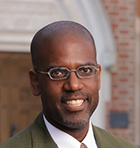
July 22, 2025
Special subcommittee considers getting rid of Virginia’s off-year elections
Law professor Hank Chambers is quoted.

Hank Chambers is a Professor of Law and Austin E. Owens Research Scholar at the Univeristy of Richmond. His areas of expertise include voting rights, criminal law, constitutional law, and employment discrimination.
Contact Sunni Brown at sbrown5@richmond.edu to connect with Chambers.

Law professor Hank Chambers is quoted.

Law professor Hank Chambers is quoted.

Law professor Hank Chambers is quoted.


Law professor Hank Chambers is quoted.
